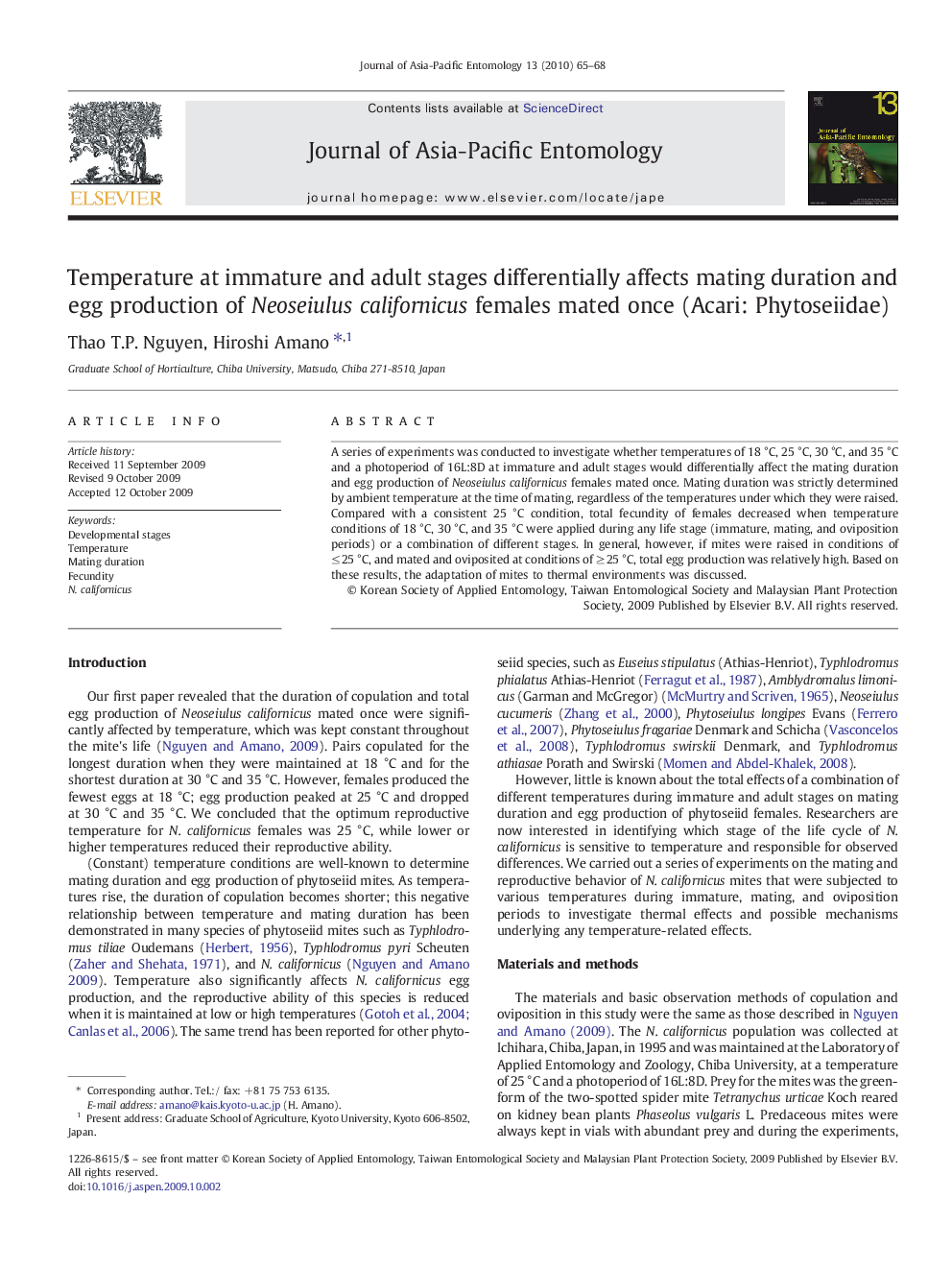| Article ID | Journal | Published Year | Pages | File Type |
|---|---|---|---|---|
| 4524955 | Journal of Asia-Pacific Entomology | 2010 | 4 Pages |
A series of experiments was conducted to investigate whether temperatures of 18 °C, 25 °C, 30 °C, and 35 °C and a photoperiod of 16L:8D at immature and adult stages would differentially affect the mating duration and egg production of Neoseiulus californicus females mated once. Mating duration was strictly determined by ambient temperature at the time of mating, regardless of the temperatures under which they were raised. Compared with a consistent 25 °C condition, total fecundity of females decreased when temperature conditions of 18 °C, 30 °C, and 35 °C were applied during any life stage (immature, mating, and oviposition periods) or a combination of different stages. In general, however, if mites were raised in conditions of ≤ 25 °C, and mated and oviposited at conditions of ≥ 25 °C, total egg production was relatively high. Based on these results, the adaptation of mites to thermal environments was discussed.
